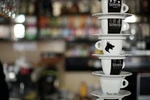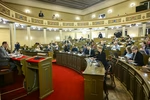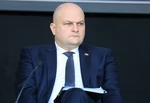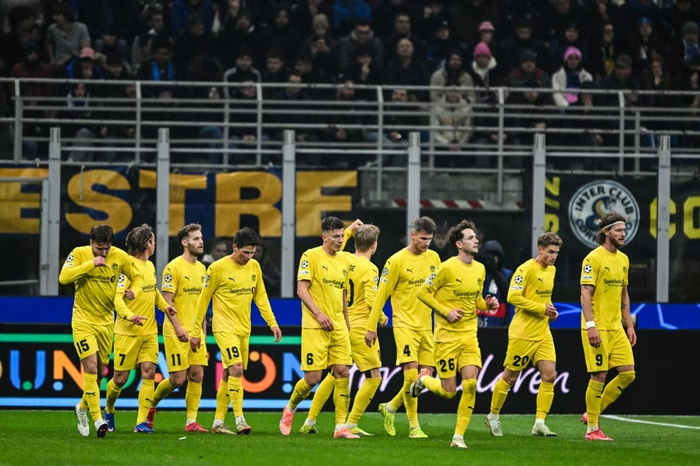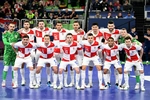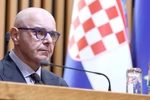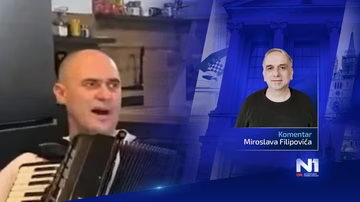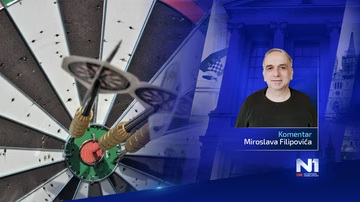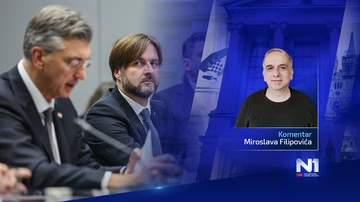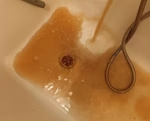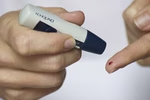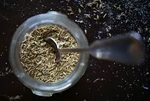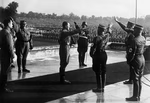
The Minister of Culture and Media, Nina Obuljen-Korzinek, said on Thursday that Croatia is not the first European country where there are Russian attempts to influence the outcome of elections and that preventing access to sources that spread disinformation could be one of the measures to tackle the problem.
"Experts dealing with cyber security and disinformation should scrutinise the content of this data. If the data is correct and appears credible from what has been written, then this is a cause of great concern for all of us. Croatia would not be the first country in Europe where Russian interference in the elections is taking place," the minister told reporters after a government meeting.
Certain steps can be taken through the Digital Services Act
Obuljen-Korzinek was commenting on a report by the London-based Centre for Information Resilience (CIR), an independent organisation dedicated to exposing human rights abuses and threats to democracy, which discusses the strong influence of pro-Russian bots on the Croatian presidential election.
According to CIR, which cites unnamed researchers who conducted the survey in Croatia, these bots were particularly active after the victory of incumbent President Zoran Milanovic in the first round of the election, promoting him as the ideal candidate due to his open criticism of Western military aid to Ukraine.
"We saw the most blatant example in Romania. I think any information like this must be treated with extreme caution and care. The preservation of our democracies is the responsibility of all of us who are involved in political processes and also of the media," said the minister.
Since social networks are not registered as media either in Croatia or in the European Union, Obuljen-Korzinek noted that it is impossible to prevent the actions of "those who pretend to be media, but often spread unverified news." On the other hand, certain steps can be taken via the Digital Services Act, which applies in the EU.
"This is a David versus Goliath battle"
"With this act, we will improve coordination between all the bodies responsible for verifying accuracy so that measures can be taken to temporarily or permanently prevent access to networks or sources that could spread disinformation. But we must realise that technology is so advanced that this is a David versus Goliath battle," the Minister emphasised.
Regarding the recent decision of the meta-platform (Facebook, Instagram) to stop cooperating with fact-checkers, Obuljen-Korzinek said that this does not mean the cessation of their work.
"The European Union was the first in the world to systematically address the issue of media literacy and strengthening the resilience of our citizens against disinformation. Information verification systems are an important tool to build trust in the media, as opposed to the uncritical spread of fake news and disinformation, which spreads four times faster than verified news," the Minister explained.
She added that citizens should be encouraged to inform themselves through the media and verify the news.
CIR: Pro-Russian, anti-EU and anti-NATO bot networks keep praising President Zoran Milanovic
In cooperation with CIR, Croatian researchers have uncovered evidence of a pro-Kremlin disinformation campaign utilising a large bot network in the run-up to the presidential election in Croatia, CIR said in its report titled "Disinformation campaign uncovered by researchers ahead of Croatian presidential run-off".
Pro-Russian, anti-EU and anti-NATO bot networks consistently praised President Zoran Milanovic and amplified pro-Milanovic content while spreading anti-EU and anti-NATO messages, CIR said.
CIR worked with the researchers to verify their findings on inauthentic behaviour related to bot and bot-like accounts. This included profiles with pro-Russian government images and hashtags, slogans promoting pro-Russian, anti-European and anti-NATO content, AI-generated profile pictures, and high-frequency and regular posting patterns.
The researchers, who are part of CIR's Resilience Network, have asked to remain anonymous to protect their safety. CIR's investigators have reviewed their findings.
Multiple accounts, multiple languages
CIR recalls that the incumbent Milanovic, who is supported by the Social Democratic Party (SDP), received 49.1% of the vote in the first round of the Croatian presidential election on 29 December, narrowly missing a majority.
Dragan Primorac - the candidate of the ruling Croatian Democratic Union (HDZ) - received 19.35% of the vote. The second round of the election will take place on 12 January.
The accounts on which pro-Milanovic content was posted were diverse and were published in English, French, Spanish, Italian, Serbian and Croatian. They seemed to mobilise in two waves: after Milanovic's first place in the first round of the election and after his statements against possible Croatian involvement in the war in Ukraine.
Kakvo je tvoje mišljenje o ovome?
Pridruži se raspravi ili pročitaj komentare



 Srbija
Srbija
 Bosna i Hercegovina
Bosna i Hercegovina
 Slovenija
Slovenija










